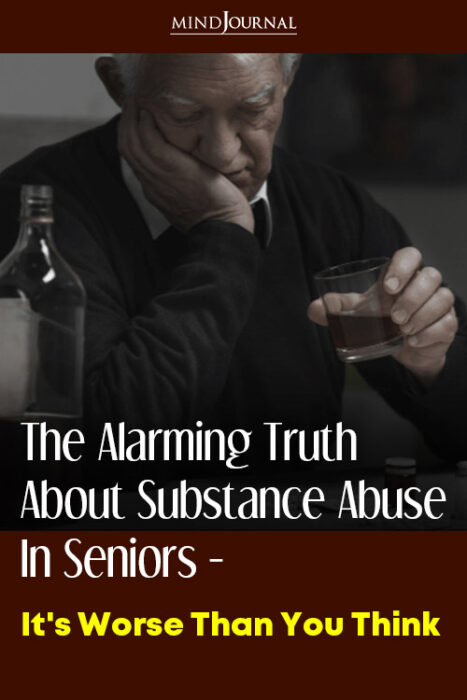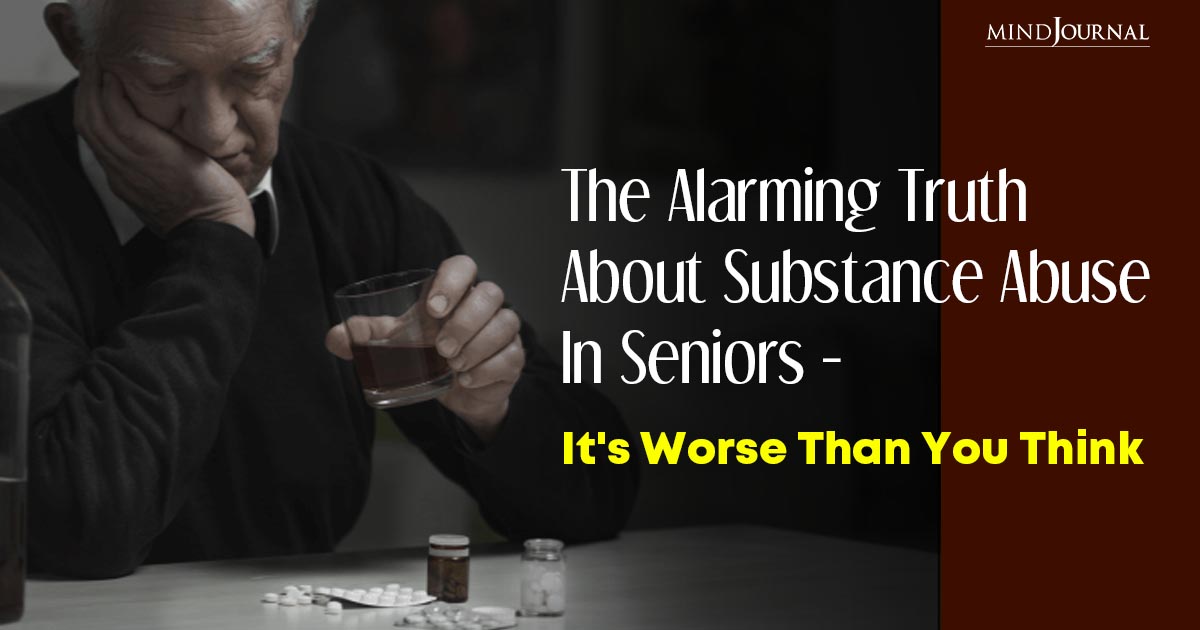Unseen and underestimated, an invisible epidemic is on the rise — substance abuse in older adults. Explore the hidden battle faced by seniors in this gripping exposé.
Many aging baby boomers have extensive histories of substance abuse involving drugs, cannabis, and alcohol. According to an expert in the field, this issue has been largely overlooked until recently, as the healthcare system was unprepared to address it adequately.
Why is substance abuse in older adults on the rise?

Dr. Benjamin Han, an addiction medicine specialist and geriatrician at the University of California, San Diego School of Medicine, engages in conversations with his new patients to address their typical health concerns related to aging. These discussions encompass chronic conditions, functional abilities, medications, and their effectiveness.
Read more here: 3 Powerful Pointers That Will Help In Preventing Substance Abuse
Dr. Han also broaches the topic of tobacco, alcohol, cannabis, and nonprescription drug usage, despite patients’ reluctance to disclose such information. However, he frames this discussion within the context of their overall health, emphasizing the physiological changes that occur with aging.
He explains to his patients that as they grow older, their bodies undergo significant changes, resulting in increased sensitivity in the brain and decreased tolerance to substances, thereby placing them at risk.
This approach enables Dr. Han to uncover cases where individuals complaining of insomnia may be relying on stimulants, potentially methamphetamines, to kickstart their mornings.
Additionally, he identifies situations where patients who have long-term opioid use for chronic pain encounter complications when prescribed additional medications like gabapentin.
Read more here: The 4 Pillars Of Sobriety: Navigating The Stages Of Quitting Alcohol
Overall, Dr. Han’s patient-centered approach encourages disclosure and fosters an understanding of the potential risks associated with older adults and substance abuse.
In the case of a 90-year-old patient, who was physically fit enough to travel by subway to his former hospital in New York City, Dr. Han encountered a puzzling situation.
The patient experienced dizziness and falls, which took some time for Dr. Han to comprehend. It turned out that the patient was consuming her prescribed medications, which increased in number with age, along with a shot of brandy.
Unfortunately, Dr. Han has witnessed older patients whose substance use exacerbated heart problems, liver disease, and cognitive impairment, leading to overdoses and, in some cases, death.
Despite the severity of the opioid epidemic, the attention given to drug use among older adults remained limited, with the focus primarily on younger individuals who were more severely impacted.
The surge of substance use in older adults and the aging baby boomer generation, particularly as they reach Medicare eligibility at age 65, has caught the healthcare field off guard. This cohort’s lifelong patterns of drug and alcohol use persist, surpassing their parents’ habits, leading to an unprepared system.
Startling evidence has emerged, demonstrating the magnitude of the issue. A study focusing on the opioid epidemic in Medicare-enrolled individuals aged 65 and above revealed a threefold increase in just five years.
Moreover, seniors have experienced a quadrupling of fatal overdoses from 2002 to 2021, encompassing both intentional and accidental deaths.
The repercussions of substance abuse among older adults extend beyond overdoses, encompassing severe health consequences such as cognitive decline, injuries, cancers, and organ failure.
Read more here: 20 Things People Realize When They Quit Drinking Alcohol
As the hidden impact of substance abuse in the elderly becomes apparent, urgent attention is required to address this escalating crisis.
By recognizing and addressing the unique challenges faced by seniors, we can provide support, resources, and hope for a healthier future. Share your thoughts about this news in the comments below!









Leave a Reply
You must be logged in to post a comment.